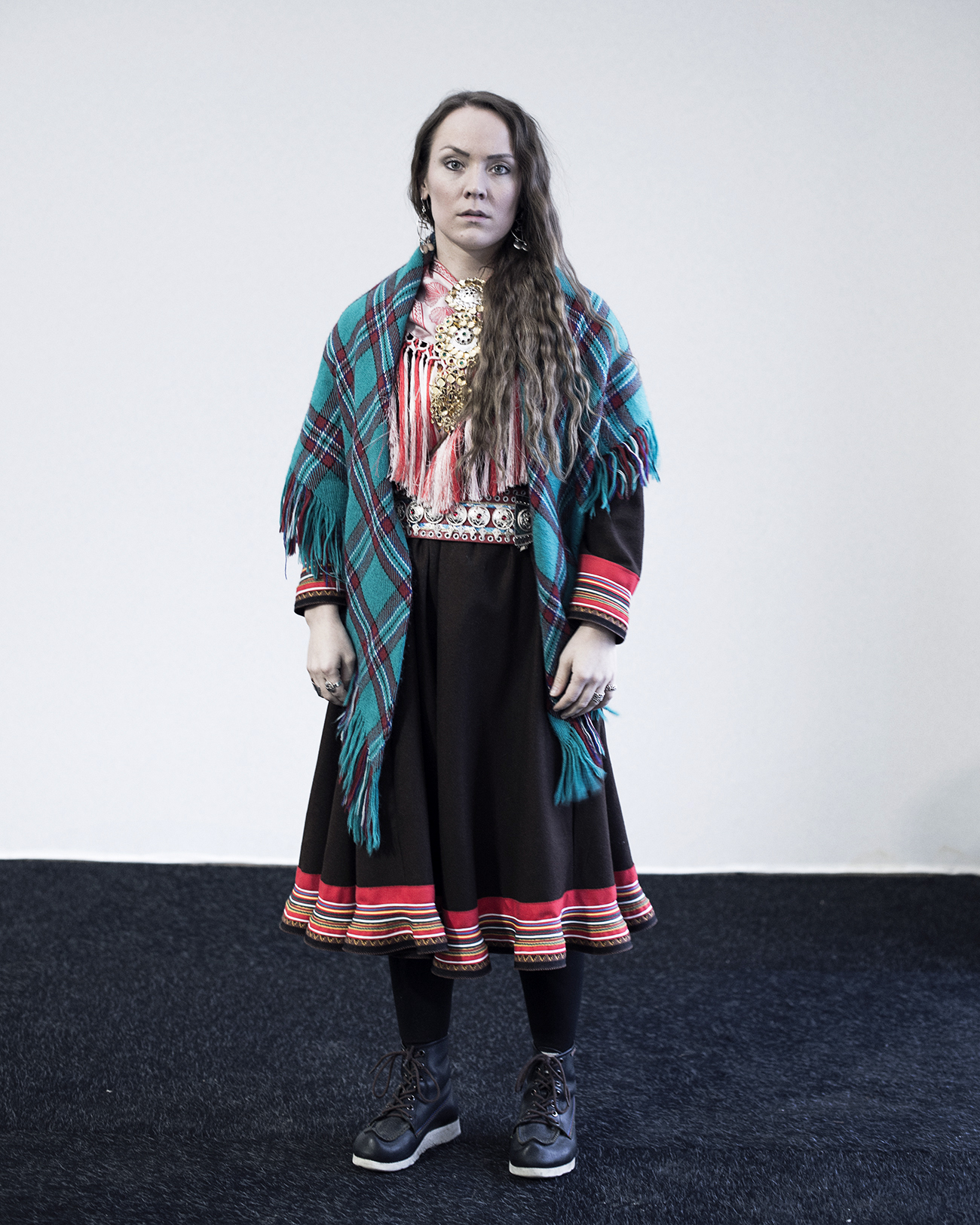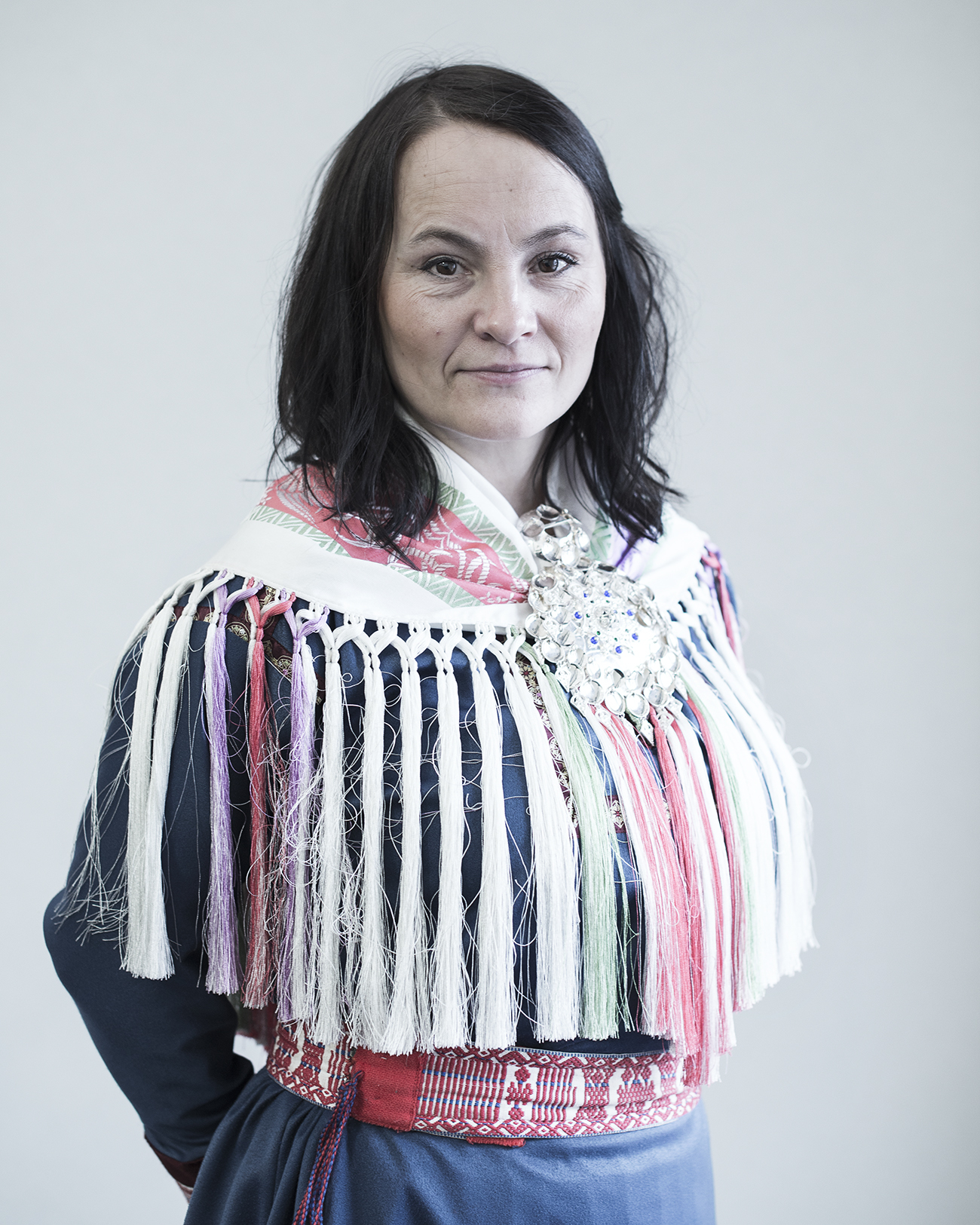
"I am afraid that if the snow disappears, so do we. The culture and the language, the lifestyle and reindeer herding may be gone.”
“I am disappointed that indigenous rights were not included in the binding climate agreement. Where will we end up? We, from the Arctic – like other indigenous peoples in the world - are the ones who have to contend with climate change every day. We must continue the fight for our rights. Never give up! Our voice must be heard. Our lives and the people who live in the north are closely linked to nature. It can't disappear, and must not be negotiated away. We are still here.”

«The world seems surprisingly satisfied with an outcome that seems to mean +3 degrees of warming, great environmental instability, natural disasters and sea level rise that makes hundreds of millions to lose their homes and livelihoods. Tackling climate change can be used to further violate indigenous peoples' rights and human rights.»

“I'm worried about the future, and about when states are implementing the new climate targets—that indigenous peoples rights will be violated to an even greater extent than before. At the same time, I'm glad that we got an agreement deal at all. No one wants to slow down the effects of climate change more than us. We just hope that it is done in a way that respects our life, our culture and our industries.”

“I am not pleased with the results in the final agreement at all, the voices and rights of indigenous people are basically left out of the agreement all together. The indigenous people are the final defenders of nature, but they are not used to help in the development of society. We know so much about the key factors in how to take care of land and use it for sustainability.”

«How can I celebrate an agreement that sends entire peoples and their cultures to death? Rights of indigenous peoples are not part of this agreement. Even though it is we who suffer the most. We are bleeding. We are drowning in the sea, oil, and mines. The future that they fear so much is already here.»

“At least there is a recognition now that indigenous peoples' rights should be taken into consideration. This is not very binding and it is much less than we were hoping for. In general, the agreement does not include concrete measures to address the problems.”

«The laws that exist now are supposed to protect indigenous peoples' rights, but they are not functioning. They are being cut all the time. We are losing our rights, and we are losing our lands. They are not willing to cooperate. It's not just happening in Russia – it's all over the world.»
«The solution will be if we change the whole structure of the whole world. The corporations, leaders of states – they should think of it. It's very difficult - It's all about earning money. No one thinks about future generations, or climate or nature.”

“Securing indigenous peoples' land rights could be a way to work against climate change. The major industries are the ones that contribute most to pollution. If we look at Canada – the tar sands and everything that happens there - there are crazy emissions that can be seen from the moon, it's such a huge area. Indigenous peoples are the last protectors because we still live by and with nature.
By securing indigenous peoples' rights, one can also preserve some untouched land, especially concerning heavy industry. Norway has had a major interest in large-scale mining in the north, and I think that would be the death of the Sami culture. Then we would have to just pack up our bags and go."








"I am afraid that if the snow disappears, so do we. The culture and the language, the lifestyle and reindeer herding may be gone.”
“I am disappointed that indigenous rights were not included in the binding climate agreement. Where will we end up? We, from the Arctic – like other indigenous peoples in the world - are the ones who have to contend with climate change every day. We must continue the fight for our rights. Never give up! Our voice must be heard. Our lives and the people who live in the north are closely linked to nature. It can't disappear, and must not be negotiated away. We are still here.”
«The world seems surprisingly satisfied with an outcome that seems to mean +3 degrees of warming, great environmental instability, natural disasters and sea level rise that makes hundreds of millions to lose their homes and livelihoods. Tackling climate change can be used to further violate indigenous peoples' rights and human rights.»
“I'm worried about the future, and about when states are implementing the new climate targets—that indigenous peoples rights will be violated to an even greater extent than before. At the same time, I'm glad that we got an agreement deal at all. No one wants to slow down the effects of climate change more than us. We just hope that it is done in a way that respects our life, our culture and our industries.”
“I am not pleased with the results in the final agreement at all, the voices and rights of indigenous people are basically left out of the agreement all together. The indigenous people are the final defenders of nature, but they are not used to help in the development of society. We know so much about the key factors in how to take care of land and use it for sustainability.”
«How can I celebrate an agreement that sends entire peoples and their cultures to death? Rights of indigenous peoples are not part of this agreement. Even though it is we who suffer the most. We are bleeding. We are drowning in the sea, oil, and mines. The future that they fear so much is already here.»
“At least there is a recognition now that indigenous peoples' rights should be taken into consideration. This is not very binding and it is much less than we were hoping for. In general, the agreement does not include concrete measures to address the problems.”
«The laws that exist now are supposed to protect indigenous peoples' rights, but they are not functioning. They are being cut all the time. We are losing our rights, and we are losing our lands. They are not willing to cooperate. It's not just happening in Russia – it's all over the world.»
«The solution will be if we change the whole structure of the whole world. The corporations, leaders of states – they should think of it. It's very difficult - It's all about earning money. No one thinks about future generations, or climate or nature.”
“Securing indigenous peoples' land rights could be a way to work against climate change. The major industries are the ones that contribute most to pollution. If we look at Canada – the tar sands and everything that happens there - there are crazy emissions that can be seen from the moon, it's such a huge area. Indigenous peoples are the last protectors because we still live by and with nature.
By securing indigenous peoples' rights, one can also preserve some untouched land, especially concerning heavy industry. Norway has had a major interest in large-scale mining in the north, and I think that would be the death of the Sami culture. Then we would have to just pack up our bags and go."